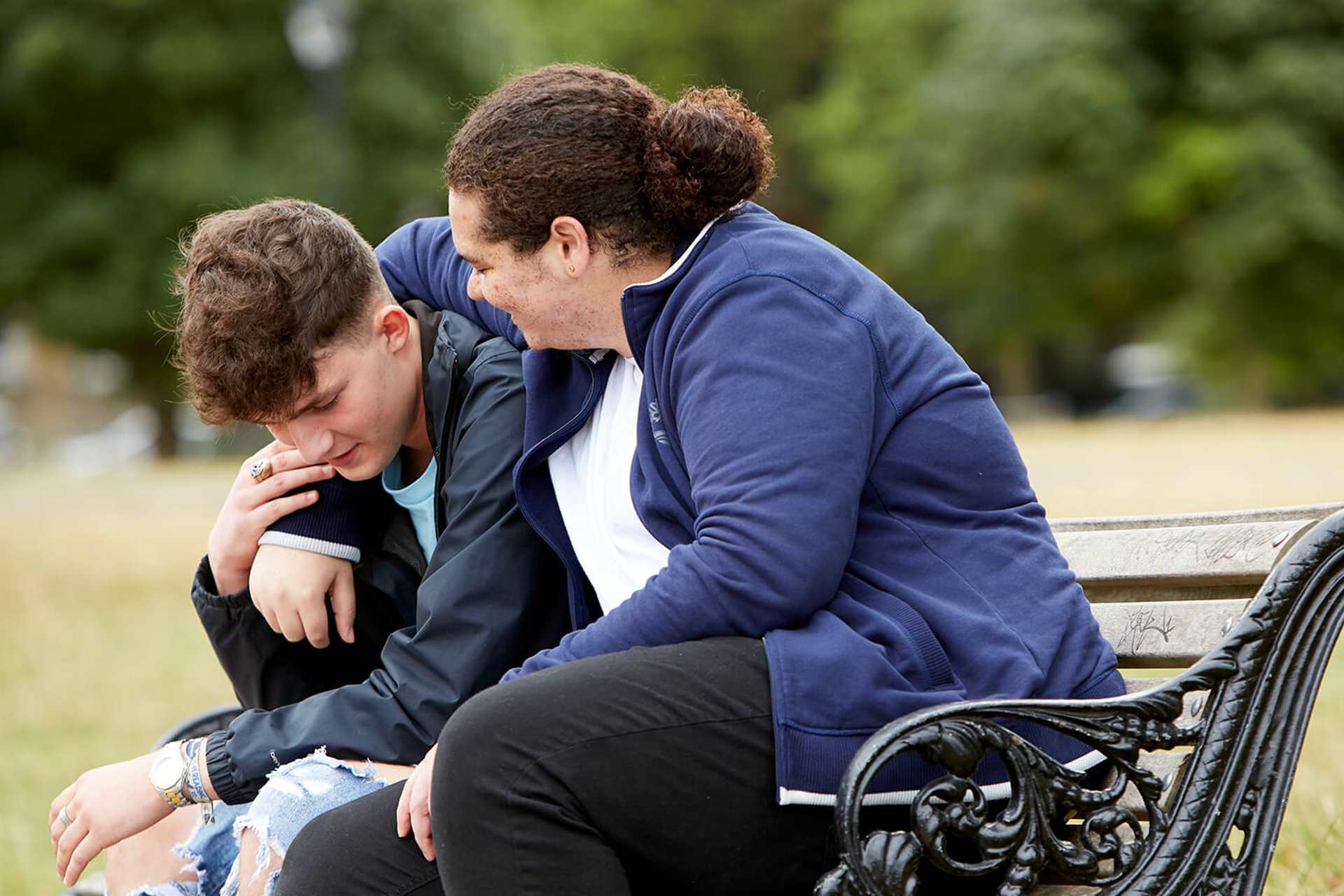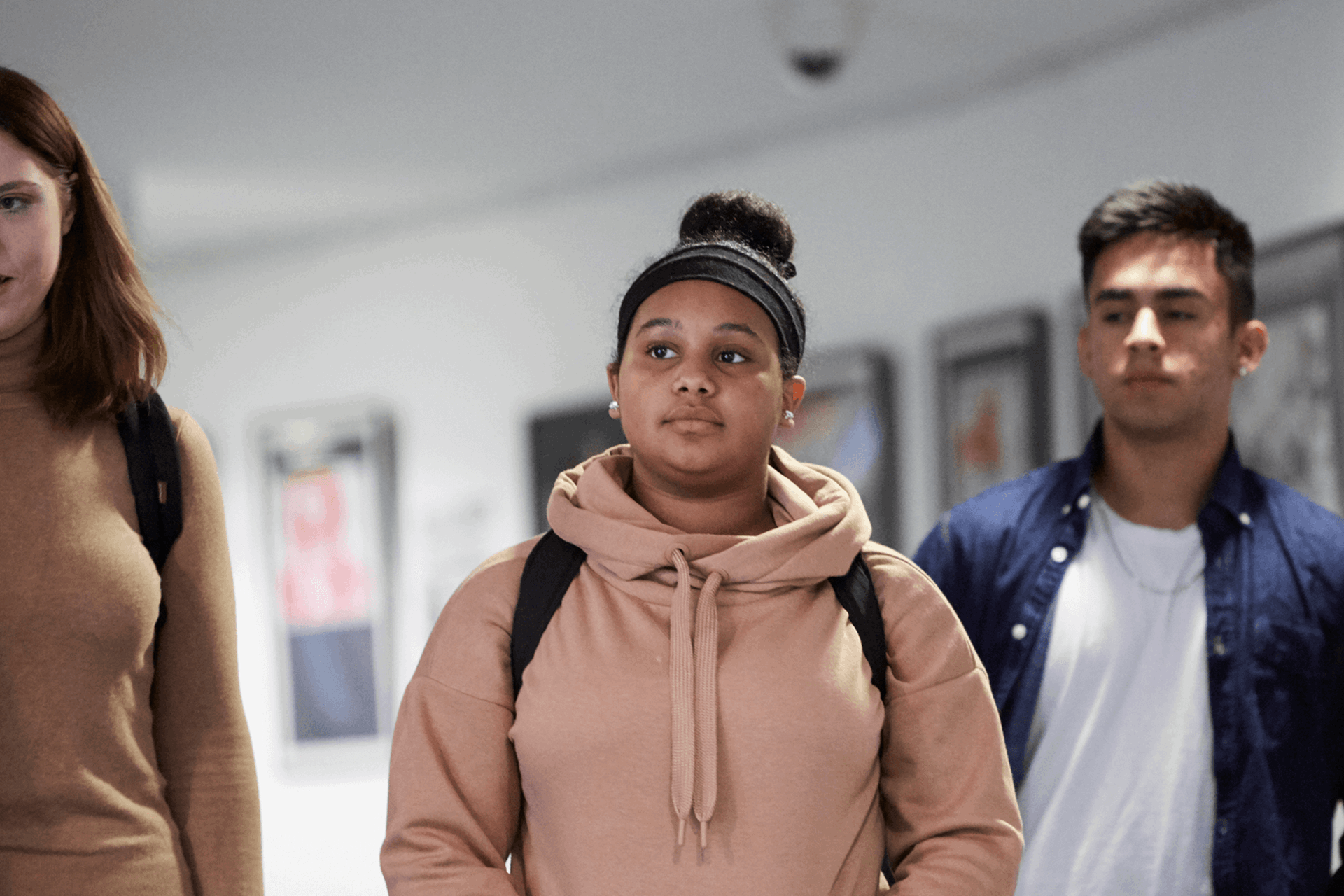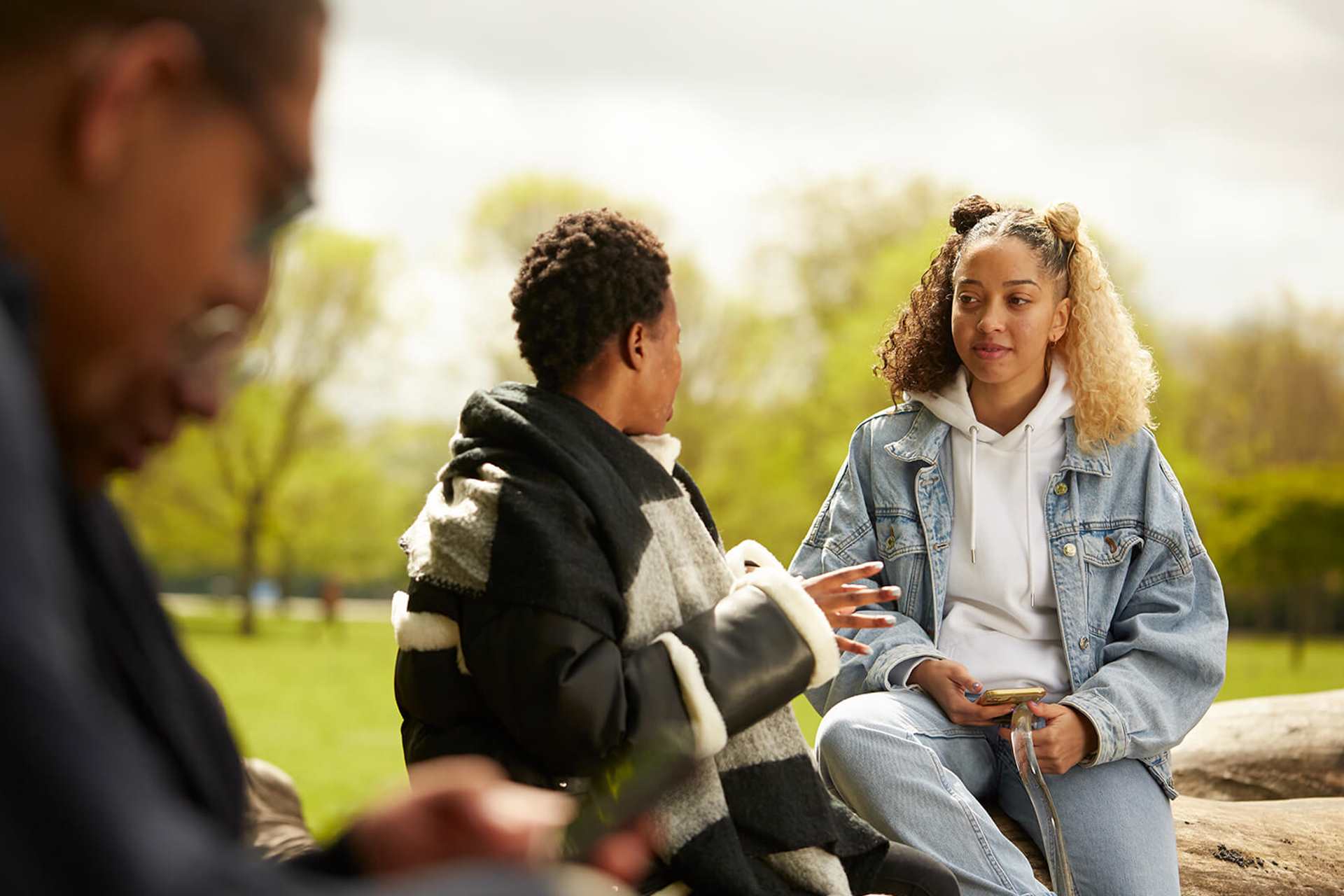Topics mentioned: self-care, disability and mental health
About: Eva, 23, shares how living with chronic pain affects her mental health, and how the Covid-19 pandemic has made things more difficult for her.
I was always an active child. From the age of six, I was a goalkeeper at my local girls’ football team and I would spend most weekends diving around in the dirt.
While at university, a niggling pain in my knee forced me to pull out of football trials and cancel half-marathon training. Even when a physiotherapist told me that the muscle around my knee was wasting, I did not consider the situation to be a cause for concern. I was young, healthy and active so I thought that I was invincible.
During my gap year, I started to suffer from excruciating pain down both legs that would keep me awake at night and would make getting out of bed in the morning extremely difficult. Some days, I would be unable to stand up for very long at all. Two months and several hospital visits later, scans revealed that I had a fracture in my spine (the result of a birth defect) which had developed into a progressive spine condition.
Several hospital visits later, scans revealed that I had a fracture in my spine (the result of a birth defect) which had developed into a progressive spine condition.
Making changes
Despite my best efforts, I was unable to continue with my job because standing on my feet all day was unbearable. Exercise and painkillers weren’t working and my only choice was to have epidural injections into my spine to numb the pain. Although this gave me some relief and allowed me to live a relatively normal life, I was devastated by the doctor’s advice. My consultant told me that due to the instability of my spine, I could no longer participate in high-impact sports such as football and running. I was told that surgery was inevitable, but due to the risks, I would have to wait until my condition worsened further.
My situation is not unique. In fact, I consider myself to be lucky; there are people my age who may have a terminal diagnosis or a severely life-limiting condition. Sometimes, people with my condition are wheelchair-bound so I am thankful that I can still walk. But, like many other young people living with an invisible illness, there are limitations which leave me frustrated.
I consider myself to be lucky; but, like many other young people living with an invisible illness, there are limitations which leave me frustrated.
For the first time in my life, I have barriers placed in front of me. Often, I grieve for my old, active life. I worry about the future, knowing that major spinal surgery is waiting for me. I become anxious about my chances of living independently. There are days when I feel hopeless and I have to remember those other young people who have it so much worse.
The impact of the Covid-19 pandemic
Lockdown certainly did not help my situation. Gentle exercise at the gym had been a welcome escape since my diagnosis, but the virus forced leisure centres to close their doors. For the first time in two years, I was unable to see my physiotherapist. And as the pain grew, the number of things I could do to unwind shrank due to government restrictions - I was no longer able to let off steam with my friends or other family members. All the hours spent confined indoors gave me too much time to dwell on my situation and caused anxiety to take over.
Due to the second wave of the pandemic, I am now faced with similar uncertainty. As somebody who needs to maintain a healthy weight, I am particularly worried about the closure of leisure centres. I rely on the gym for both my physical and mental wellbeing.
All the hours spent confined indoors gave me too much time to dwell on my situation and caused anxiety to take over.
My tips for coping
If you are a young person struggling with chronic pain or an invisible illness, please know that you are not alone. It might seem that everyone else has their life together but do not take social media as an accurate representation. Chronic pain might rob you of special opportunities and moments you will never get back, but it will also gift you with a strength that others will never know.
Don’t bottle up your feelings. You are allowed to be upset. You are not fighting a battle and so it is not a sign of weakness to admit that you are struggling. There seems to be an expectation that people who suffer from an illness should be positive and rise above the challenges. This is not possible all the time. No matter how positive you are, there will be days when you feel angry, upset and hopeless, and days when you despair and feel like giving up, even if you don’t openly say so. Reach out to someone you trust and tell them how you truly feel.
Don’t bottle up your feelings. You are allowed to be upset.
I have also found that joining a support group is particularly helpful. You will be surprised by how many people share your experience and you will be further surprised by how many of those people can find the right words to support you. Joining an online support group has helped me to feel less alone and more positive about the future; it has helped me to feel like part of a community.
Most importantly, never give up. There are pain-free days waiting around the corner that will fill you with immense joy and they will be worth more than all of those days that you missed out on.
More information and advice
Where to get help
-
Childline
If you’re under 19 you can confidentially call, chat online or email about any problem big or small.
Sign up for a free Childline locker (real name or email address not needed) to use their free 1-2-1 counsellor chat and email support service.
Can provide a BSL interpreter if you are deaf or hearing-impaired.
Hosts online message boards where you can share your experiences, have fun and get support from other young people in similar situations.
- Opening times:
- 24/7
-
Samaritans
Whatever you're going through, you can contact the Samaritans for support. N.B. This is a listening service and does not offer advice or intervention.
- Opening times:
- 24/7






